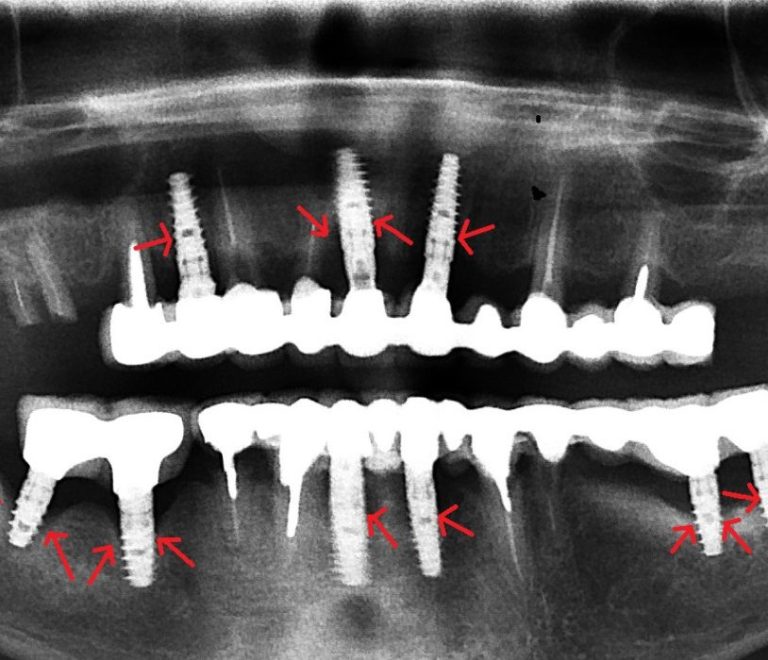Affordable Dental Implants at Manor Clinic from only £1,700
to include the implant, abutment and final crown by our highly experienced dentists.
At Manor Clinic, we pride ourselves on providing high-quality implant treatment at very competitive prices. We use implants that have been well tested with high success rates. The abutment, the middle piece connecting the implant and the crown, is custom-made to fit your mouth and the position of your teeth, with superior results, all to include the final crown for only £1,700. We provide a wide range of implant treatments, including single-tooth implants, implant bridges and full mouth bridges. Full mouth bridges can be supported by only four implants for each arch and this is called All on Four. Our implant dentist, Dr Daniel, is highly experienced and has placed hundreds of implants over the years. He attended the two-year part-time Implant Dentistry course by the Faculty of General Dental Practitioners, referred to as the Gold Standard by the General Dental Council.
Contact our team today to schedule a consultation or ask any questions you may have. We’re here to help you every step of the way.
Our implant surgeon, Dr Y. Daniel, is highly experienced and has placed hundreds of implants over the years. He attended a two year part-time Diploma in Implant Dentistry course at Faculty of General Dental Practitioners


Things you need to know about Dental Implants
Before you have an implant placed, you should be dentally fit with no decay, gum disease or infections.
We offer a short initial chat (10 minutes appointment) to quickly check the mouth, give you an idea about the cost and length of the treatment and answer any questions you may have. If you decide to go ahead with the implant treatment, you will then be booked for a one-hour long Extensive Examination appointment to check your mouth, take radiographs, intra-oral scan, and photographs. Such an appointment costs £200. You are then referred to a CT centre to have a three-dimensional X-ray taken the cost of which is about £120 per arch payable to the CT centre. The CT scan is then discussed with you and the treatment, options, limitations and cost are discussed. After the implant is placed, a three months wait is required for the implant to integrate with the bone. After that measurements are taken to make the customised abutment and the final crown. The final crown is fitted within 2-3 weeks of this appointment.
If you had a tooth extracted, you should not wait more than 6 months before having a dental implant placed. After a tooth is removed, the bone in which the tooth was embedded will start shrinking away and as much as 50% of bone can be lost after only one year of waiting. This will make implant placement more difficult and possibly more expensive as on some occasions bone has to be added. The bone can be synthetic, from
animals such as cows or could be your own bone harvested from a different location from within your mouth. Implants are not 'Fit and Forget'. One of the most common questions patients ask before choosing dental
implants is how long they will last. Dental implants are designed to provide long-term durability but they need to be checked on a regular basis to ensure that no bone is being lost. Radiographs are normally taken annually or every two years. Their survival can be influenced by various factors such as oral hygiene, overall health, history of gum disease, diabetes, grinding and smoking.

Most implants will integrate nicely and be successful. A very small number of implants will fail after being placed and the failure rate is about 2-4%. If this happens, the implant is removed and after a short wait of about 6-10 weeks it is placed back at no extra charge to you. A higher failure rate is experienced if there is a lack of bone, with patients who smoke, drink, have a history of gum disease or who are grinders or diabetic. This will be explained to you during the Extensive Examination appointment.
Not all abutments, the middle piece connecting the crown to the implant, are the same. In the past, dentists had a limited choice to choose the ideal angle and width to suit the mouth and bite of the patient. Nowadays, they can be milled specifically, tailor-made to fit your teeth and mouth with superior results.
At Manor Clinic we only use customised abutments.

There has been a boom in going abroad for cheaper implant treatment. Quite often, the treatment and its planning are not adequate, with implants placed in the wrong place and inferior implants and materials being used. Dental implants are not 'Fit and Forget', regular checks and maintenance are needed. When things go wrong, we are often unable to help the patients as the drivers for the implants placed abroad are not available in the UK. Please click on this link from the British Dental Association for more information on going abroad for dental treatment.

This is an example of a patient who travelled abroad and had a high number of implants placed without supervision and regular checks. Most of these implants have a (very) poor prognosis as they developed advanced gum disease (peri-implantitis) and have now to be removed. This could have been avoided.
We need your consent to load the translations
We use a third-party service to translate the website content that may collect data about your activity. Please review the details in the privacy policy and accept the service to view the translations.

